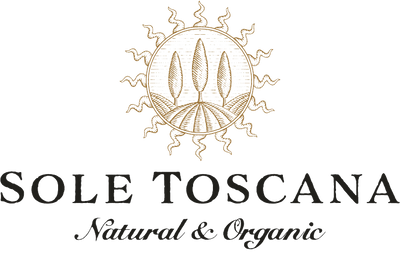If you love skincare, you're probably familiar with vitamin C. But do you know there are two types of this vitamin?
Conventional skincare products usually list ascorbic acid in their ingredients because they're using artificial versions of the vitamin.
Four benefits of vitamin C to the skin
FIRMS AND TONES YOUR LOOK
Vitamin C helps to keep your skin looking firm and toned.
REDUCES THE APPEARANCE OF DARK AREAS
Vitamin C is perfect for combating dark spots from sun damage. It also reduces the appearance of wrinkles and fine lines.
ANTI-AGING
Vitamin C is a potent antioxidant that shields us from environmental stressors.
GOOD FOR OILY SKIN AND CLOGGED PORES
If you experience these, you may want to add vitamin C to your skincare life.
Considering all this, vitamin C should be part of your skincare.
But what's the difference between these two kinds of vitamins?
NATURAL VITAMINS
These come from fruits, plants, and other natural sources. Peppers, berries, citrus fruits, and other natural foods contain natural vitamin C.
SYNTHETIC VITAMINS
These are made in the lab, usually from ingredients like acetone and corn syrup. They don't have flavonoids but are blended with other artificial ingredients to promote absorption.
WHY DO COMPANIES USE SYNTHETIC VITAMIN C?
- Synthetic vitamin C is a cheaper way to include the nutrient in product formulations.
- Natural vitamin C is sensitive to high temperatures. Synthetic vitamin C, however, can survive pasteurization. That's why ascorbic acid is a common ingredient in things like orange juice.
- The synthetic versions are more stable and last longer than natural vitamins.
TYPES OF SYNTHETIC VITAMIN C
The examples of synthetic vitamin C you're likely to find in skincare products include:
- Ascorbic acid
- L-ascorbic acid
- Magnesium ascorbyl phosphate
- Ascorbyl palmitate
- Ascorbic acid polypeptide
- Ascorbyl glucosamine
- Sodium ascorbyl phosphate
- Ascorbyl glucoside
- Ester-C
- Sodium ascorbyl palmitate
L-ascorbic acid is considered the best, as the skin readily absorbs it. The other types are often combined with sugars, fatty acids, or minerals to provide additional benefits or to increase absorption.

Which is better?
Of course, we believe natural is better, but let's investigate why.
Both types of vitamin C appear identical in molecular structure, and synthetic vitamin C also provides benefits to the skin. So the problem isn't that synthetic vitamin C is terrible. When used in the right formulas, it's very beneficial for the skin. But here are some differences that support our argument for natural.
BIOAVAILABILITY OF VITAMIN C
Bioavailability means the skin's ability to absorb vitamin C from a product.
The topical application of vitamin C is rather complex. A 2001 scientific study showed that L-ascorbic acid had to be made at the right pH level (3.5 and under) to be absorbed by the skin. Also, other forms of synthetic vitamin C (such as ascorbyl-6-palmitate and magnesium ascorbyl phosphate) didn't penetrate the skin. They also didn't increase vitamin C skin levels.
THE SCIENCE
L-ascorbic acid is the preferred artificial form of vitamin C, but it's the least stable. The stable options, like ascorbate phosphate, don't readily permeate human skin and have limited benefits.
The ingredient list might indicate that you're getting vitamin C from the product, but in reality, your skin may not be receiving any benefits.
STUDIES SHOW
One laboratory study found that ascorbyl palmitate had toxic effects. Researchers applied it to the skin and then exposed it to UV-B-radiation. The ingredient promoted oxidation of the fats in the skin.
The goodness of natural vitamin C
Natural vitamin C, like what is in our Neroli Radiance Serum, contains not only bioflavonoids and enzymes but also ascorbic acid, which is beneficial to the body.
Organic ingredients like those we use in our products provide additional properties that work with vitamin C to create positive effects on your skin.
AMLA BERRY
The amla berry, for instance, has antioxidants that balance natural oils, protect, and help improve your skin tone.
Rosehip seed oil also contains vitamin E, which works positively with vitamin C to protect our skin, and is a source of essential fatty acids which help in moisturization.
The sea buckthorn berry has moisturizing fatty acids and other nutrients, such as vitamin A to provide positive benefits.
These natural oils absorb quickly into your skin and have various components that give you benefits that you'll notice in a short time.
Conclusion: you decide
You may have a positive experience with synthetic vitamin C, primarily if you use products with the right formulations.
However, we recommend that you go for products like ours that provide you with the real vitamin C. By doing this, you reduce the risk to your skin while enjoying anti-aging benefits.
With love,
The Sole Toscana Beauty Team


